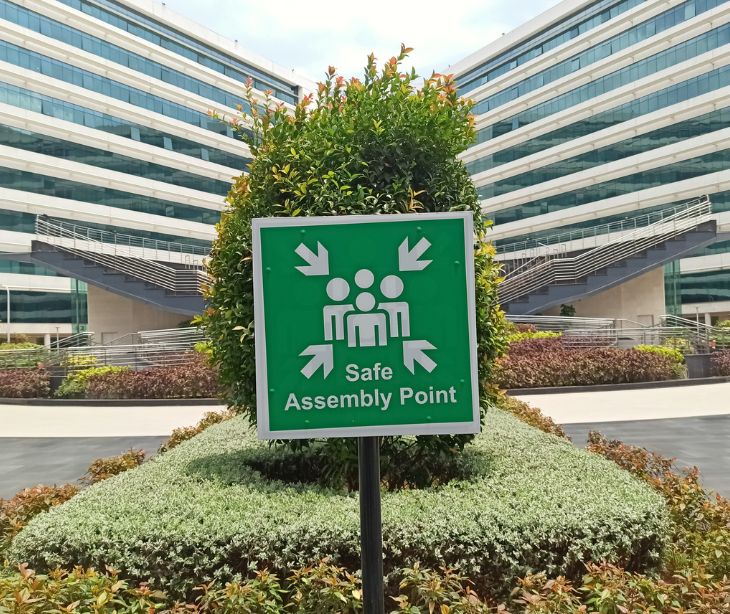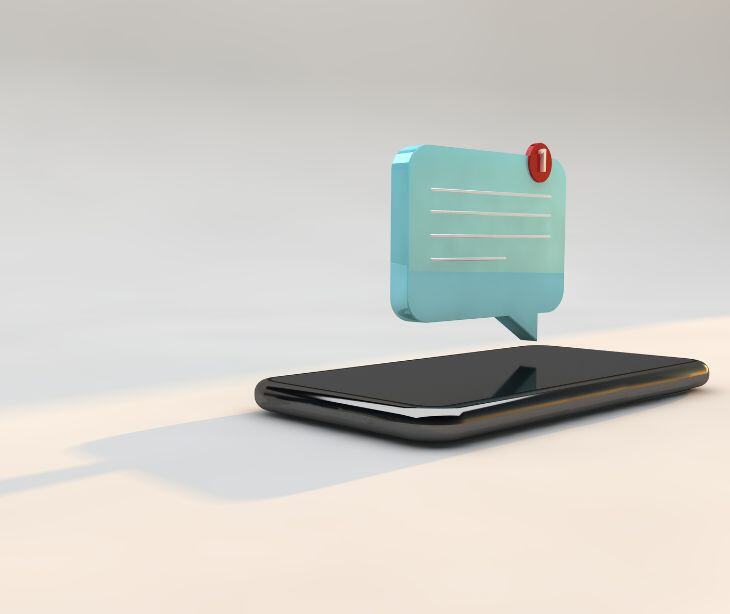3 min read
How to use HIPAA compliant text messaging during emergencies
Liyanda Tembani
July 11, 2023

Communication during healthcare emergencies must be reliable to ensure the timely delivery of critical information to patients. However, healthcare professionals must maintain patient privacy and comply with HIPAA regulations, including when using text messaging as a communication tool.
HIPAA compliance and text messaging
Healthcare professionals must maintain HIPAA compliance when using text messaging for healthcare communication. Unauthorized disclosure of patient information through unsecured text messaging poses significant risks, including breaches of confidentiality and potential harm to patients.
To remain compliant, healthcare professionals must adopt secure practices and use text messaging platforms designed to meet HIPAA requirements. These platforms employ encryption and other security features to protect the content of the messages, ensuring that patient information remains confidential and inaccessible to unauthorized individuals.
Communicating critical test results
Healthcare professionals can use HIPAA compliant text messaging platforms to securely communicate critical test results to authorized recipients involved in the patient's care, such as primary care physicians, specialists, or nurses. They can implement proper identity verification procedures, such as two-factor authentication or password-protected platforms, to ensure the information reaches the intended recipient.
To adhere to HIPAA regulations, limit the use of identifiable protected health information (PHI) in text messages and instead use unique ID numbers. Additionally, healthcare professionals should document the communication in the patient's medical record to maintain a comprehensive record of the results and subsequent actions.
Related: What are the 18 PHI identifiers?
Medication changes or recalls
Text messaging can be a valuable communication tool in scenarios where medication changes, or recalls occur due to safety concerns, allowing healthcare professionals to reach patients quickly and efficiently. HIPAA compliant text messaging platforms provide a secure means of communicating medication-related information, minimizing the risk of unauthorized access to sensitive information.
Healthcare professionals can notify patients about medication changes, such as dosage adjustments or alternative prescriptions, ensuring continuity of care. They can also communicate medication recalls, providing instructions for discontinuing the use of affected medications and guidance on obtaining replacements.
Healthcare professionals must obtain patient consent for communication via text message to ensure that patients are aware of the potential risks and limitations associated with this method of communication. Additionally, healthcare professionals should limit the use of patient identifiers in text messages to protect patient privacy and comply with HIPAA regulations. Train staff members on HIPAA compliance so they can understand the proper protocols and security measures for medication-related communication via text messaging.
Public health emergencies
During public health emergencies, such as disease outbreaks or natural disasters, swift and accurate information dissemination helps to prevent further spread of the disease or mitigate the impact of the crisis. Text messaging can deliver important alerts, preventive measures, and vaccination updates to patients.
HIPAA compliant text messaging platforms enable healthcare professionals to securely communicate essential information to individuals, communities, or specific patient groups. These platforms offer features such as mass messaging capabilities and the ability to target specific recipients, ensuring that the information reaches the intended audience effectively.
Healthcare professionals can use text messaging to inform patients about necessary precautions, such as hand hygiene practices, social distancing guidelines, or travel restrictions. Regarding vaccination updates, text messaging can be an efficient method of notifying patients about vaccine availability, scheduling appointments, and providing relevant instructions.
Appointment cancellations or rescheduling
Text messaging is a convenient means of notifying patients about changes in their appointments. HIPAA compliant text messaging platforms enable secure communication, ensuring patients receive timely information about appointment modifications. When necessary, healthcare professionals can inform patients about cancellations, rescheduling options, or alternative care arrangements. Properly trained staff members can effectively manage these communications, promptly addressing patient concerns or questions and offering appropriate support.
Emergency evacuations
Text messaging can allow healthcare professionals to quickly reach patients with important evacuation instructions, safety guidelines, or alternative care options. Healthcare professionals can guide patients through evacuation, providing information on assembly points, transportation options, or nearby healthcare facilities where they can seek necessary medical assistance.
Patient safety alerts
Healthcare professionals can securely communicate alerts, precautions, or instructions via text messaging while adhering to HIPAA guidelines. These alerts can include information about medication recalls, potential risks or hazards associated with specific procedures or treatments, or safety guidelines for specific medical conditions. Properly trained staff members can compose clear and concise messages, ensuring that patients understand the importance of the alert and the recommended actions to be taken.
Healthcare professionals can efficiently convey information while safeguarding patient privacy and security by using HIPAA compliant text messaging during emergencies.
Subscribe to Paubox Weekly
Every Friday we'll bring you the most important news from Paubox. Our aim is to make you smarter, faster.



